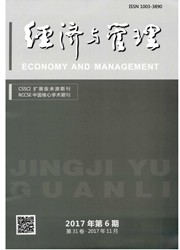

 中文摘要:
中文摘要:
基于关联交易的视角,选取ST河化公司进行案例研究,分析大股东采取掏空和支撑行为的动机、选择掏空和支撑行为的时机以及实施掏空和支撑行为的手段。研究发现,关联交易是大股东进行掏空和支撑行为的重要方式,并且具有一定的隐蔽性。当上市公司的财务状况良好时,大股东一般会对上市公司进行掏空;当上市公司陷入财务困境(例如被ST)时,大股东会对上市公司进行支撑,使上市公司免于退市。大股东的支撑行为表面上是为了提高公司业绩,其最终目的则是为了今后继续掏空上市公司,以获得长期利益,因此是一种机会主义行为。
 英文摘要:
英文摘要:
On the perspective of connected transaction, this paper chooses ST HeHua Company as the case, and analyzes the large shareholder's motivation of tunneling and propping, as well as the timing and methods for tunneling or propping. The research finds that connected transaction is the important method that the large shareholders carry out tunneling and propping, and is private. When the listed company is in good financial standing, the large shareholder will tunnel the listed company. When the listed company falls into financial distress (such as ST), the large shareholder of the listed company will prop it, in order to help the listed company from delisting. The large shareholder take propping seemingly to improve the performance of the listed company, and its ultimate purpose is to continue tunneling the listed company to achieve long-term interests, so it is a kind of opportunistic behavior.
 同期刊论文项目
同期刊论文项目
 同项目期刊论文
同项目期刊论文
 期刊信息
期刊信息
